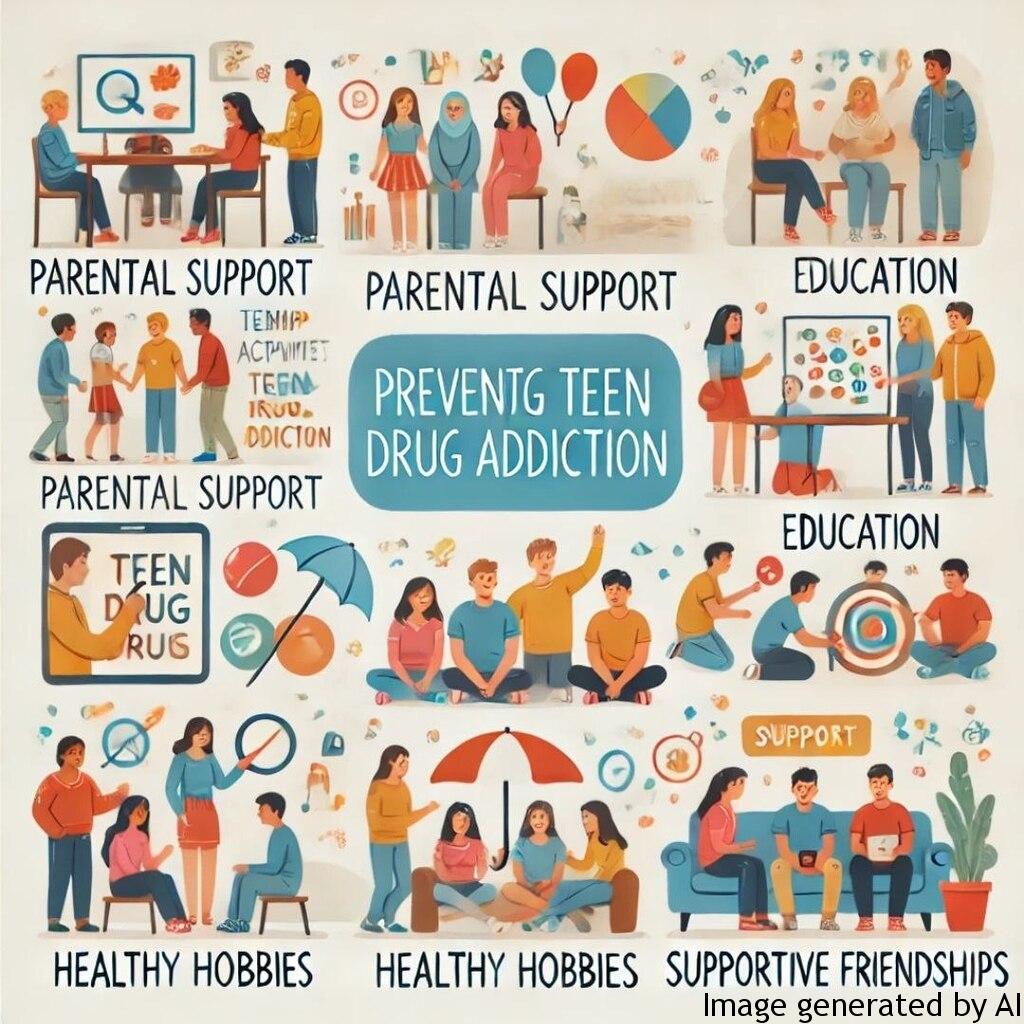Introduction
Teen drug addiction is a pervasive problem that affects millions of individuals and families worldwide. During adolescence, young people make crucial life decisions that may shape the rest of their lives. It is also the stage of life where children are most susceptible to substance abuse. Therefore, it is imperative to implement effective strategies for preventing teen drug addiction with immediate effect.
Understanding Gender Expectations And Their Impacts On Men’s Mental Health
Gender expectations often give rise to many pressure points in a male’s life including in their teenage years. Society’s expectations from men to always appear strong, stoic, financially supportive etc. could trigger stress, anxiety, and depression. This could result in multiple negative outcomes including the risk of resorting to substance and drug abuse as a form of coping mechanism.
Pressure to conform
Boys are often pushed to conform to traditional masculine norms which can stunt emotional growth and coping mechanisms. When facing emotional distress, boys might turn to substance abuse as an escape.
Self-medication for mental health
Seeking professional help for mental health problems is often stigmatized in males. This could result in stages of self-medication with drugs and alcohol, resulting in addiction.
Examples of How Gender Roles Affect Male Lives
There are numerous examples showing the pressure of gender expectations on males:
- The ‘Man Up’ Culture: This phrase, often used to silence boys when they express their feelings or vulnerabilities, can lead to bottled-up emotions and may amplify the prevalence of drug use as an outlet.
- Success Pressures: Expectations for men to be the financial providers can lead to increased stress. Teens may start experimenting with substances to cope and may develop an addiction.
- Physical Strength: The expectation for males to be physically strong can lead to the use of performance-enhancing drugs, leading to potential addiction.
Improving Psychological Health Considering Gender Roles
Understanding the impact of gender norms is crucial in defining strategies to improve mental health and prevent drug addiction in male teens. These strategies could include:
- Teaching Emotional Intelligence: Equip boys with skills to express and manage their emotions healthily and confidently.
- Encouraging professional help: Normalize seeking professional help for mental health issues among boys and men. This includes therapy and counseling.
- Breaking Down Stereotypes: Create an environment that allows boys to be vulnerable without judgment.
Conclusion
Drug addiction in teens, particularly in boys, is a significant public health concern that urgently needs addressing. Changing societal perception of masculinity and encouraging open discussions on mental health could potentially reduce the likelihood of drug and substance abuse among young men. Early prevention strategies focusing on emotional well-being and mental health, acknowledging the impacts of gender expectations, can be effective tools in this battle.

